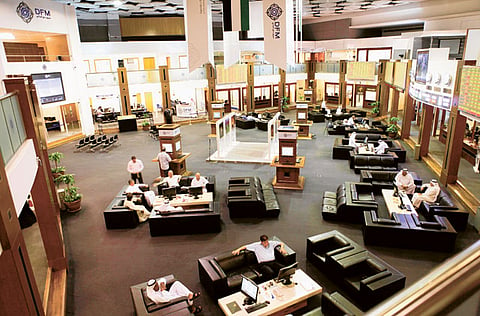Creating single Gulf currency needs more than political will
Clarity of advantages and disadvantages essential to forge union

It is a strange thing that any group of nations should wish at this time to emulate the most immediately newsworthy precedent of having established a regional monetary union.
Without mentioning names, it would seem that establishing a single currency across a set of neighbouring and even relatively like-minded countries essentially requires political union, preferably in advance.
Otherwise, those who prosper in this type of arrangement will be expected to prop up those who succumb to its pressures, and— since the system has an inherent rigidity which inhibits compensating adjustments — indefinitely so.
If the willingness is not there on the one side to subsidise partners in perpetuity, or on the other side to take orders in exchange for rescue funds, then certain difficulties will ensue and probably persist.
The Gulf, though, may be different, in economic terms. It would have to be, because the undoubtedly impressive force of motivation deriving from political will might not be sufficient in itself. The continental project dominating the airwaves these days was always, and remains, essentially political at heart.
The GCC has of course been talking about monetary union for many years, and is assumed to be taking discussions a step forward now in reaction to the Arab Spring, which has brought a sense of doubt and historical transition to the region generally.
So much has already been written on the subject. It has often been observed that the Gulf has sufficient attributes in the nature of an optimum customs area — a somewhat technical topic in economics — to promote the viability of monetary union. The trad-itional arguments in favour as to efficiencies in trade and other market integration, also policymaking disciplines, are numbingly familiar.
While the commitment to monetary union between the six states became fractured when Oman and the UAE stepped aside in recent years, the idea of a Gulf dinar or the like being brought into existence has remained on the table.
Politically, it is not difficult to sustain a rationale whereby the stronger members will look to sustain the weaker in the case of strategic force majeure.
But what is the truest, accessible understanding, one that might inform the foundations of honest negotiation among the GCC countries?
Clearly, there is a serious faultline in the academic idea that monetary union per se brings convergence of performance among its constituent economies. That always seemed an implausible pretext in principle, wheeled out in Europe only as an element of cover for the decidedly murky nature of the underlying politics. And in practice divergence has been pretty much the proven result instead, though it takes a decade or two to become irrefutable.
Independence
As a research paper (The Monetary Union of the Gulf Cooperation Council and Structural Changes, May 2012) published this month by the Arab Centre for Research and Policy Studies in Doha, Qatar identifies, the essential condition upon which to forge monetary union is clarity as to the advantages and disadvantages, so as to warrant abandoning a national currency and the freedom of manoeuvre and independence it brings. *
It is important to have proper regard for the value of precedent. The paper's author Dr Khalid Bin Rashid Al Khater argues that in the Arab world lessons are insufficiently "learned from history or from others' experiences".
One such evident lesson is that if monetary union is to be successful, "abandoning sovereignty in some matters, such as fiscal policies and their coordination, is of vital importance".
Taking it as read that monetary union in itself can have drawbacks, Dr Al Khater makes it plain that "partnership and solidarity" will be prerequisites, also leadership by some kind of supranational council, supported by necessarily able, scientific research, hitherto said to be lacking in the Gulf.
Fair enough. The most resonant aspect of this timely paper, though, is the global context. Inter alia, the world has changed.
Dr Al Khater warns that a detailed level of scrutiny should be cognizant of the structural changes occurring elsewhere. For not only is monetary union intrinsically a multifaceted endeavour, but the global environment into which it could be brought is neither immutable nor immaterial.
So, looking forward rather than back, there's another, profound issue to take on board relating to the West's other benchmark case. "The US economy and the dollar are in long-term decline," the paper claims. It may soon be time to slip anchor from the safe harbour of exchange that the Gulf has adopted for decades.
With potentially a ‘new world order', featuring the emergence of the BRIC countries, "the Gulf would be a strong economic force if [it] were to enable a single economic bloc," the author contends.
The implications are twofold: that these are aggravatedly uncertain times, and there is some kind of premium in bringing a certain, collective weight to the fray; and though monetary union might in certain respects be costly, it might be costlier not to create it.
Sign up for the Daily Briefing
Get the latest news and updates straight to your inbox



